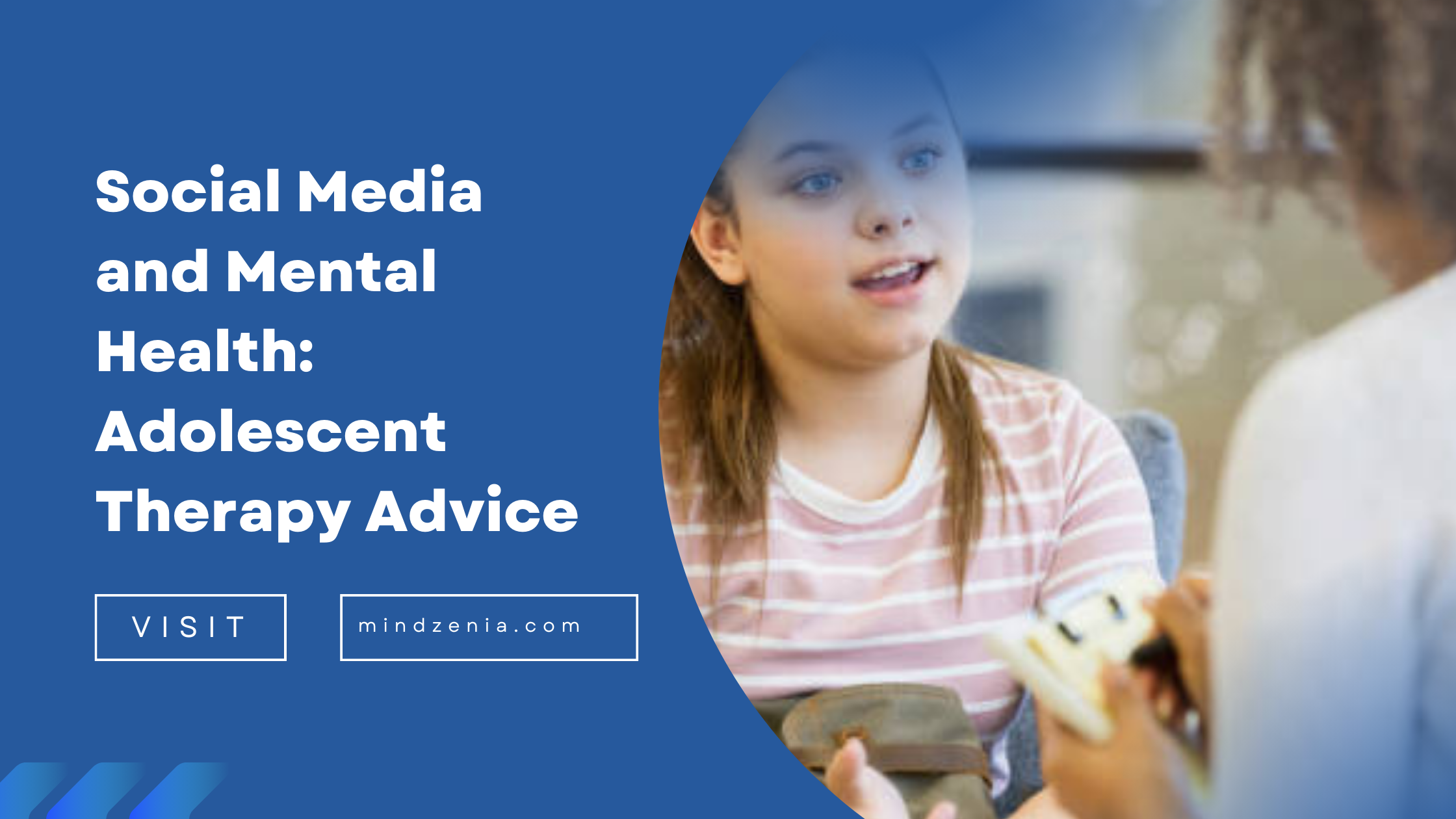Social Media and Mental Health: Adolescent Therapy Advice
Adolescent Therapy Adolescents in the present generation cannot afford to be detached from social media. Although it provides multiple opportunities like communication with friends, experience sharing, and getting information, it contains multiple threats including mental health issues. This blog post focuses on the topic of social media and its connection to mental health based on information and advice from Adolescent Therapy.
Effects of Social Networking Sites on Adolescent Psychological Health
In conclusion, social media has proven to have positive and negative effects when it comes to the mental health of an individual. On the positive note, accounts like Instagram, TikTok, Snapchat offer an outlet for creativity, self-expression, and communication. People can discover others who share similar views, get help and make friends.
Nevertheless, the drawbacks tend to overshadow the above mentioned advantages. Social media addiction has been associated with several mental health disorders, including anxiety disorders, depression, and low self-esteem. Undefined
Comparison and Self-Esteem:
Young males and females easily develop the urge to compete with others when using social media. Such portrayals present users with unrealistic goals that make them develop low self-esteem due to comparison with others’ well-chosen images.
Cyberbullying:
- Cyber bullying and cyber stalking are categories of violations that are familiar with. Cyber bullying is very effective in provoking intense feelings of sorrow, anxiety and, in some cases, depression which may lead to thoughts of suicide.
Sleep Disturbances:
- Consuming more time on portable devices can mostly have negative impacts such as interrupting the sleep-wake cycle especially when the devices are used at night. Sleep has a very fragile relationship to a person’s mental wellbeing, and it is well documented that lack of proper sleep may cause mood disorders and cognitive deterioration.
Addiction and Dependency:
- Anyone would admit to the fact that social media is addictive. This implies that adolescents are forced to spend most of their time on social media checking their accounts, which in turn takes a toll on their real face-to-face interactions thus feel socially isolated.
Guidance from Adolescent Therapy
It is at a adolescent therapy where relevant solutions can be found to reduce the negative impact of social media on the health of consumers. Here are some key
Recommendations:
Set Boundaries and Limit Screen Time:
- This means that there is a need to define and set some form of boundaries when it comes to the use of social media. Advise adolescents to reduce their screen time and step away from their gadgets for some time. Another useful measure is to make it a rule to have a ‘no digital day’ at least one day a week.
Promote Positive Online Behavior:
- Make teens more aware about friendly use of internet. Remind them to think about what they were posting; teach them to critically select what they wish to read. With mass popularity of technology devices, children can be taught some basics of ethical behavior on social networks and other online platforms to minimize rate of cyber bullying among them.
Encourage Open Communication:
- Encourage adolescents to open up about their experience in the use of social media. If there are any adverse effects they can be easily pointed out and help is available for the affected parties or individuals.
Monitor Content and Privacy Settings:Monitor Content and Privacy Settings:
- Parents or guardians should know which sites their children or wards are using and what they are likely to come across. Learning proper privacy setting and precautions and having reminders about abusive interactions are possible ways to prevent adolescents’ negative experiences.
Promote Offline Activities:
- Make sure adolescents frequently participate in offline activities that are enjoyable to the mind, including sports, hobbies, and company of family and friends. Besides, the degree of using social media by working at home should be a mixture of both online and offline tools.
Seek Professional Help When Needed:
However, if a particular teen’s use of social media is negatively affecting them, they should consult a professional. Adolescents can be helped understand the strategies needed to manage social media use and other related mental health illnesses by therapists.
Conclusion
In terms of social media’s advantages and disadvantages on Adolescent Therapy, the following can be summarized. Although it creates avenues to human interaction and unique ways of expression, digital media has downsides in this aspect. Delving deeper into the possible effects of such cards and diseases of adolescents and applying the measures learned at therapy, only parents, guardians, and the Adolescents themselves might be able to traverse through the world wide web, healthily and safely. This concept underlines the need to prioritise the state of mental health and to promote constructive use of social media as a way of resolving issues instead of exacerbating individuals’ negative experiences and emotional states.

